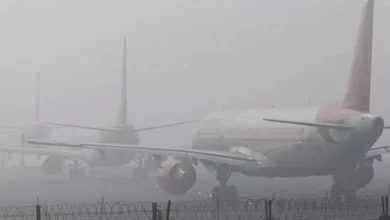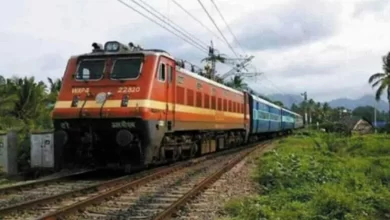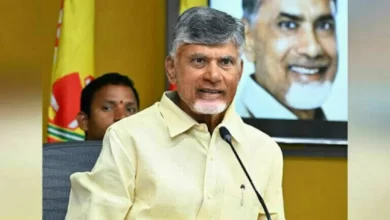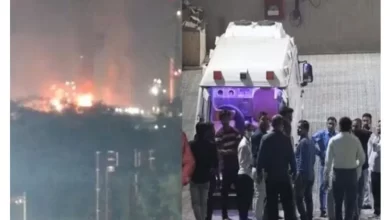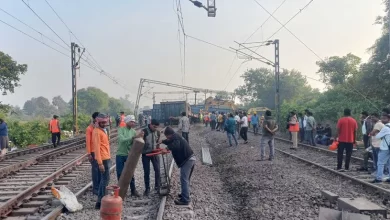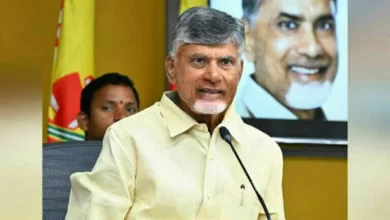Ukraine war, Prophet remarks — ASEAN raises sticky issues in ties with India at Delhi meet

From the possible impact of the Russia-Ukraine war on Southeast Asia and South Asia to remarks against Prophet Muhammad, foreign ministers of the Association of Southeast Asian Nations’ (ASEAN’s) member states raised several crucial issues during their visit to India.
These talks took place even as the leaders batted for greater connectivity and integration with South Asia through the country.

The issues were raised at a ‘Special ASEAN-India Foreign Ministers’ Meeting’ held in New Delhi Thursday to commemorate the 30th anniversary of the ASEAN-India Dialogue Relations in 2022, which has been designated as the ‘ASEAN-India Friendship Year’.
They were also discussed at the Ministerial Session of Delhi Dialogue XII, held later in the day.
The meeting was co-chaired by External Affairs Minister S. Jaishankar and Vivian Balakrishnan, Singapore’s foreign affairs minister.
Of ASEAN’s 10 member states, Myanmar, which is being ruled by the military junta, was not invited to the meeting.
During the special India-ASEAN meeting, Jaishankar said that partnership between the two is now more important than ever due to the “geopolitical headwinds” from the Russia-Ukraine war, and its “knock-on effects on food and energy security and disruptions in logistics and supply chains”.
“India fully supports a strong, unified and prosperous ASEAN, one whose centrality in the Indo-Pacific is fully recognised,” he added.
On India-China relations, the external affairs minister said at the Delhi Dialogue, “It is natural while surveying the larger landscape that our ASEAN partners would have an interest in relations between India and China. So let me be clear that development of our ties has to be based on three mutuals — mutual respect, mutual sensitivity and mutuality of interests.”
“The state of the border will be reflected on the state of the relationship,” he added.
Balakrishnan meanwhile said that the world has also “changed rapidly” in the last few months, adding: “By that I am referring to Russia’s invasion of Ukraine, which in our view has upended the international systems of rules, norms, which we all depend on.”
The Singapore minister also said that the sharpening of superpower rivalry between the US and China has “direct implications on all of us in Asia”.
“These developments, if unchecked, can threaten the whole system of peace and stability on which we depend for our growth and development and prosperity over many decades,” he added.
The visiting foreign ministers also met Prime Minister Narendra Modi and National Security Advisor (NSA) Ajit Doval Thursday.
India and ASEAN’s strategic partnership also completed a decade this year.
‘Need to enhance cooperation’ amid Russia-Ukraine war
The Ministerial Session of Delhi Dialogue XII was jointly organised by the Research and Information System for Developing Countries (RIS) and the Economic and Research Institute for ASEAN and East Asia (ERIA).
Jaishankar said, “The conflict in Ukraine is exacerbating concerns over food, fertiliser and our fuel security. This global scenario highlights the need for countries of the Indo-Pacific to enhance cooperation and in fact, to stand together.”
Reiterating the impact of the war, Singapore minister Balakrishnan said that ASEAN nations need to be able to maintain a “rules-based international order” which “recognises the diversity of Asia and makes the necessary adjustments to the post WWII institutions”.
He stressed that these rules should not be those “just written and codified and fossilised by the western world”.
According to Cambodia, which is the ASEAN chair for 2022, the “spillover effect” of the Russia-Ukraine war on Southeast and South Asia, as well as the larger Indo-Pacific region.
‘Vaccine of strategic trust’
Indonesian Foreign Minister Retno Marsudi said the Ukraine war has given rise to “trust deficit” amongst countries.
“Trust deficit is like a virus. They prevent countries from cooperating, force countries to see the world from a zero-sum mindset and before we know it, this trust deficit could easily escalate into an open conflict,” Marsudi said.
“We should prevent the virus from spreading extensively in the Indo-Pacific…What happened in Ukraine is a wake-up call for all of us in the Indo-Pacific.”
The minister further said that countries therefore need to develop a “vaccine of strategic trust to fight against the virus of trust deficit”, adding that the regional architecture in the Indo-Pacific has to be “inclusive”.
Controversial remarks against Prophet
Hinting at the ongoing protests and diplomatic row between India and the Gulf over controversial remarks made about the Prophet, Balakrishan said India and ASEAN relations go back thousands of years and not just 30 years.
“Over these thousand years, the cultural, the linguistic, the religious, commercial and the people-to-people ties have bound us together. Even our religions — Hinduism, Buddhism and Islam — either originated from or effected through India into Southeast Asia,” he added.
On the sidelines of the meetings, Balakrishnan told journalists that the anti-Prophet remarks by the two former BJP spokespersons is a “delicate subject” and was discussed “informally” with Indian officials.
“Let me just reflect views from a Singapore perspective. I think this episode is another stark reminder of why we need to be so careful and why we need to strongly reject hate speech, incendiary speech, speech which incites or aggravates, or causes insult or division within societies,” said Balakrishnan.
Identity politics, religious extremism & hyper-nationalism
Malaysia’s Foreign Minister Dato Sri Saifuddin Abdullah highlighted the issues of identity politics and religious extremism.
“The holistic approach of living together at two levels — people-to-people, people of different religion, different backgrounds, and nation to nation practising in multilateralism…We are discussing building bridges (between India and ASEAN) at a time when identity politics and nationalistic politics threaten to edge out values of moderation and tolerance,” he added.
(Edited by Gitanjali Das)

